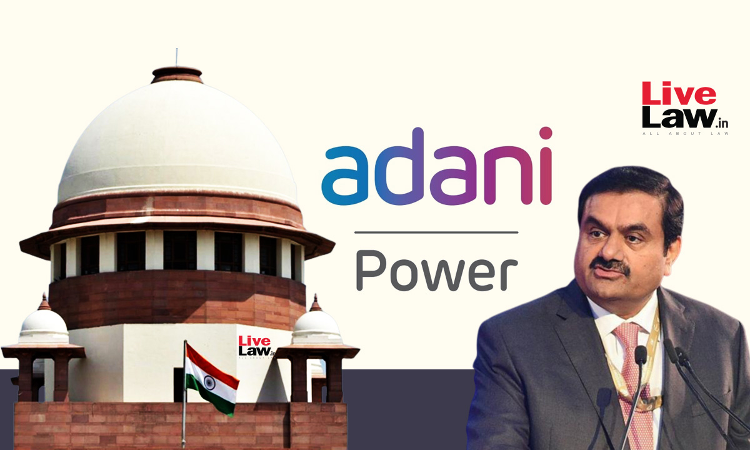Supreme Court Holds Uttar Haryana Bijli Vitran Nigam Liable To Pay Compound Interest To Adani Power Ltd
Padmakshi Sharma
25 Aug 2022 7:49 PM IST

Next Story
25 Aug 2022 7:49 PM IST
The Supreme Court has held that Uttar Haryana Bijli Vitran Nigam Ltd needs to pay compounded interest to Adani Power limited, on account of "change in law". The bench comprising Chief Justice NV Ramana, Justice Krishna Murari and Justice Hima Kohli, held that if the banks had charged Adani Power interest on monthly rest basis for giving loans to purchase the installations required on grounds...
